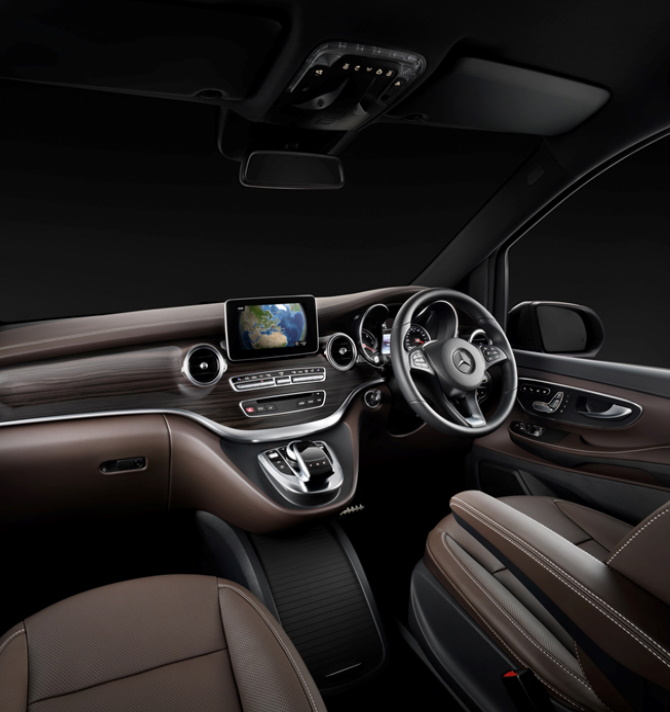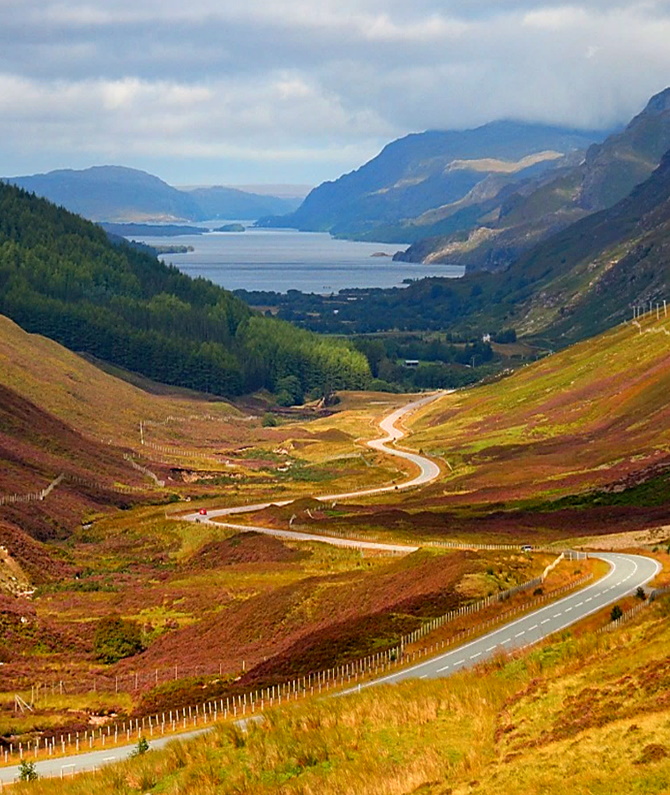
The road to Loch Maree.
There are some things however that you’ll need to ‘take-on’. We might as well run through these, but by the same token you shouldn’t be too alarmed. Hundreds of thousands of visitors face the same thing every year and just about every single one of them manages
Driving in some countries might resemble the ‘wild west’. The UK isn’t one of them. The UK’s roads are comparatively well regulated
Seating capacities are rarely an issue on a golf trip. Luggage however is. Golfers invariably require a bigger vehicle than their bare number suggests they should. Each golfer will normally generate a single luggage item, plus a golf bag. We’re afraid golf bags are notoriously awkward. Once your party reaches three people, you’ll need an MPV. Don’t be tempted by someone telling you an ‘estate car’ will work

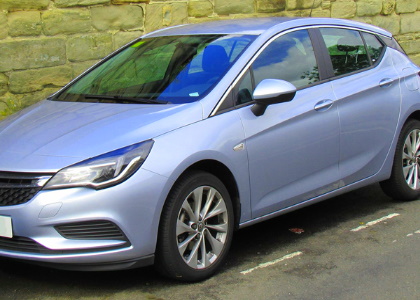
A two ball party should be looking to use a ‘large estate car’. A single person can use a 'saloon' Three is the number whereby we have to use a nine-person MPV
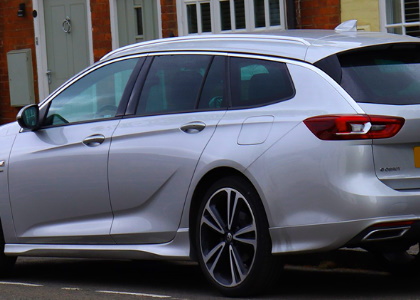
An MPV has luggage capacity for nine items (four players with a golf bag and suitcase each). Tee times are of course sold in fourballs. It works out well.
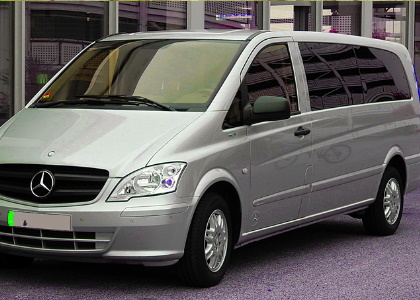
It's possible to operate a multiples of four strategy in convoy, but eventually we might need a larger capacity midi-bus/ coach.

Loch Torridon.
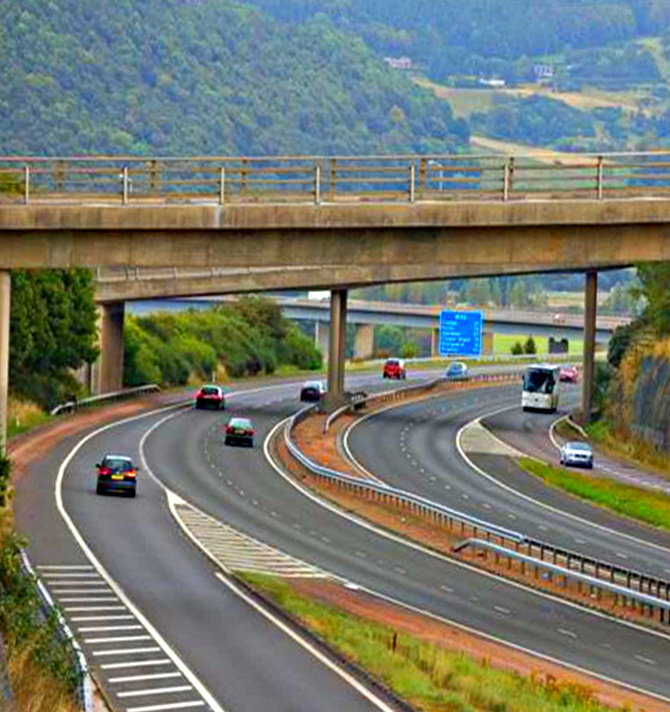
Motorways (blue signage) are probably the easiest roads to drive on. They’re essentially international in their design. Any capable driver shouldn’t have any difficulty adjusting to them quite quickly. So long as you can observe ahead and behind, and maintain a good lane discipline they’re the nearest thing you’ll encounter to ‘point-and-go’. Anyone landing at Edinburgh airport is quite lucky in that you’ll potentially be onto a motorway within a few minutes if heading north or west.
‘A’ roads are also fast moving (dark green signs) but entry onto the carriageway from vehicles joining isn’t quite as well structured as motorway, and you can encounter a few more quirks
Driving in built-up areas is likely to be where you’ll encounter the most difficulty. Ironically however, very congested traffic isn’t too much of a problem given that it usually involves gridlock. Traffic jams give you a lot more time to observe and watch others performing manoeuvres. They also involve slow-speed ‘crawling’. Glasgow, Edinburgh, Belfast and possibly Aberdeen are the only cities where you’re likely to encounter issues. We can avoid central Dublin in most cases by staying at Portmarnock.
The most frequent problems you’ll encounter are right-turns, which now feel counter-intuitive, and roundabouts where you need to observe and ‘give way to the right’. The most disconcerting conditions are probably heavy, but free-flowing traffic where thing scan begin to happen a little bit more quickly. The time of day can influence this
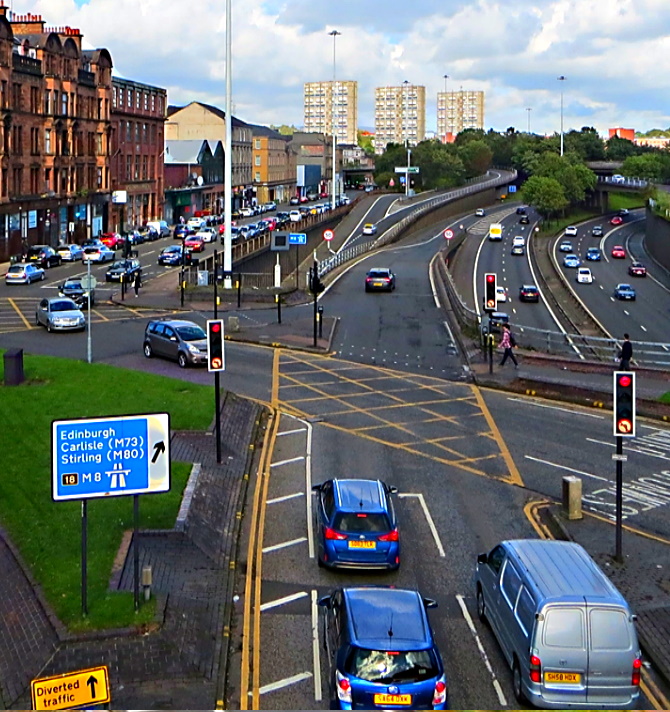
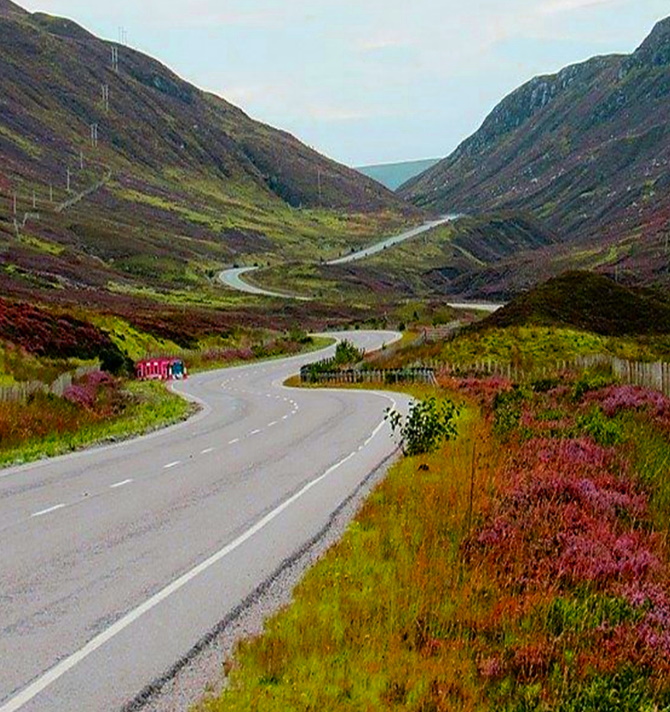
Driving in Scotland’s rural areas is often considered to be something of a legitimate leisure activity within its own right. The roads are uncongested and frequently scenic, particularly those of Perthshire and the Highlands. The A82 and the A9 are two trunk-roads that travel through both areas linking them to the central belt
One of the biggest challenges you might face is losing concentration as a result of not necessarily having enough other vehicles around to keep you focused. There is an issue with drivers who are used to driving on the right to start doing so. Modern vehicles do have smart alert ‘bleepers’ to warn you if you’ve crossed a white line without indicating, and an attentive passenger is always a help too
All of our self-drive vehicles will come with an audio ‘sat-nav’. Faraway Fairways produces a travel plan for you which includes postcodes for programming into the ‘sat-nav’ and estimated ‘last-time’ to leave in order to arrive at place X by time Y
We will nearly always be able to provide you with an automatic transmission so as to give you one less unfamiliar thing to concern yourselves with
With the exception of the ‘super-peak’ season when it’s withdrawn due to workload, we will be able to offer you the option of a meet and greet service. The actual transfer of the vehicle at both Edinburgh and Glasgow can be a bit clunky (its smooth at Inverness)
